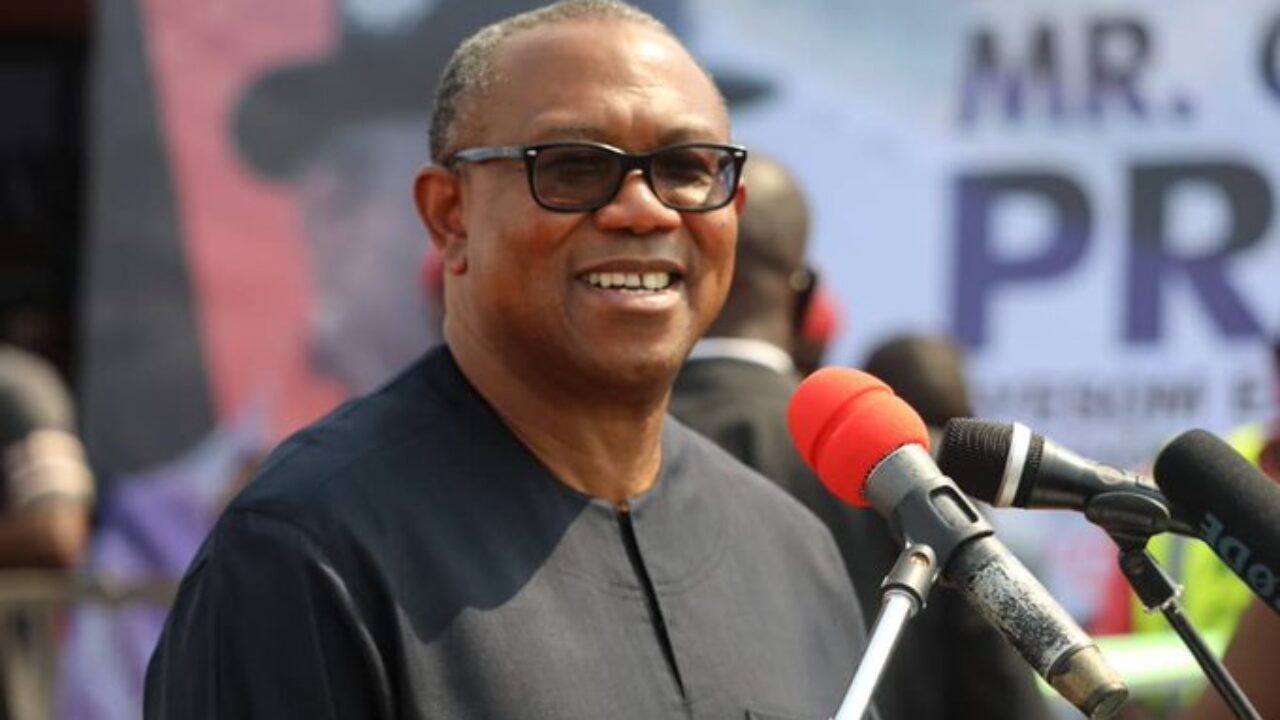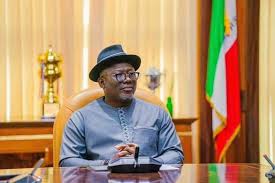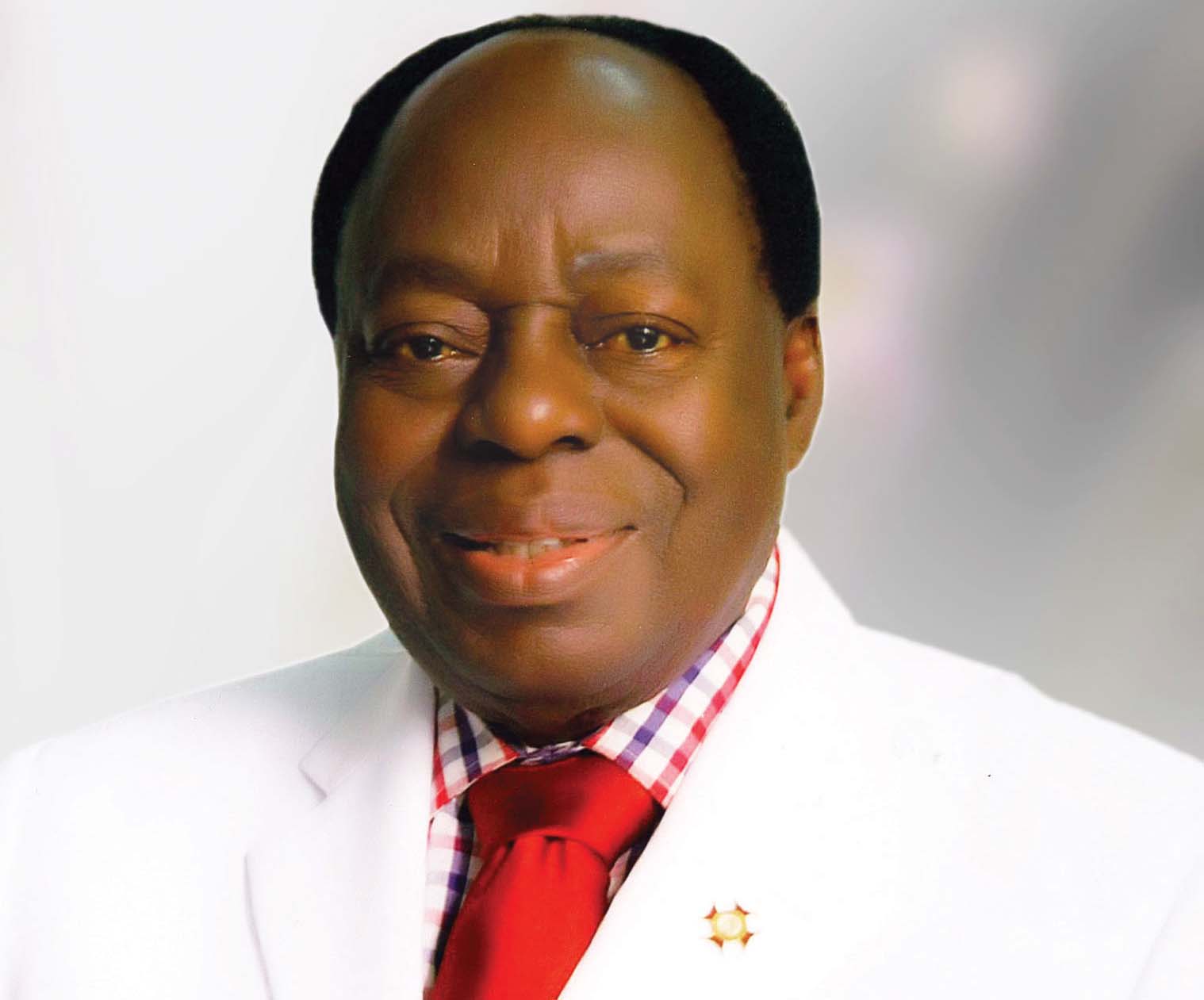Headlines
Nigerians in diaspora move to raise $150m, N100bn for Peter Obi’s campaign

In a bid to bolster his chances in the 2023 presidential election, which holds 178 days from now, Nigerians in the Diaspora have formed groups of committees to launch crowdfunding initiatives for the presidential candidate of the Labour Party (LP), Mr. Peter Obi.
They plan to unveil in the coming days a crowdfunding portal with a target to raise $150 million from Obi’s supporters in the diaspora and N100 billion from those in Nigeria, THISDAY has reliably gathered.
A dependable source close to one of Obi’s supporters leading the process, said Tuesday they are targeting small amount in contributions to be gathered from supporters largely from the grassroots to help the LP set up more structures across the country and make the former Anambra State governor a formidable contender in the presidential race. The initiative is being driven by young enthusiastic Nigerians in the tech sector who are making waves and yearning for new leadership at the helm of affairs in the country. Some of whom have only recently come of voting age. “They are organising themselves into small committees and groups to contribute small amounts in a major effort to help Obi’s Campaign establish structure and presence around the country. Interestingly while some of their parents are either supporters of PDP or APC, they are rooting for Peter Obi,” a source involved in the discussion disclosed to THISDAY yesterday night.
The campaigns for the presidential election, which holds February 25, 2023, will officially commence on September 28, 2022.
Unlike 2019, when the race was essentially between All Progressives Congress (APC) and Peoples Democratic Party (PDP), LP has become a major factor in the coming presidential poll.
Obi, who was in California, yesterday, is currently on a foreign tour to meet to his supporters in Canada, Germany, London, Rome, and the United States, where it is expected he would raise a substantial amount of the funds needed for the election.
“With that amount of cash, he would be able to build structures for Labour Party across the country and become a formidable opponent in the 2023 election and a threat to other candidates,” the source said.
Crowdfunding is a financing method that raises money by soliciting small individual investments or contributions from a large number of people. Political crowdfunding is widely considered an acceptable medium for raising funding from grassroots supporters.
Crowdfunding, particularly online, speaks to much wider groups than a party’s usual support base, while minimising time and effort for both the party and donors. It also has the potential to enhance a sense of community between the party and its base.
People without large amounts of wealth are seldom asked to support political parties financially. But with the advent of crowdfunding, this has changed and supporters with relatively low financial strength are now seen as a huge resource for most parties, according to a report by Sweden-based International Institute for Democracy and Electoral Assistance (IDEA).
However, as with political party funding, generally, political parties that engage in crowdfunding have to take the legal framework into account.
Most countries have regulations for donations and related privacy and transparency issues. In many countries, parties are only required to report donations above a certain threshold, to encourage smaller donations, while allowing the monitoring of potentially risky larger donations in order to prevent money laundering, terrorism financing, as well as other illegal financial transactions. The funds are also subjected to taxation.
“The automated nature of crowdfunding can allow donors to divide donations into smaller amounts more easily, thus circumventing the reporting obligations that apply to donors (although this only applies to some countries),” the IDEA report stated.
The Labour Party presidential candidate also yesterday, said Nigerians in the diaspora could be effectively mobilised as true assets for the rapid development of the country, adding that the Nigerian diaspora can play a major role in helping the country transform its education sector.
Obi, in a series of Tweets from California, United States, where he attended a forum with the theme, “The Role of the Nigerian Diaspora in Civic Leadership in Nigeria,” noted that the diaspora community could help Nigeria set up and administer endowment funds in the Nigerian universities.
He said endowments could also be used to provide support for students to go on exchange programmes that add value to their skills and motivation as well as support faculty research as well as research and development (R&D), in general.
“Recently, Dr. Phillip Ozuah took a catalytic lead by donating $1 million to University of Ibadan,” he added.
Obi wrote, “Nigeria diaspora remittances now augment and support education, promote entrepreneurship, and stimulate businesses and investments in healthcare, in addition to foreign remittances. Nigerians in the diaspora constitute the first line of representation and the first line of defense.
“They have been flying the national flag high, in contributing their quota towards the development of the country across various sectors.
“Diaspora remittances now outstrip foreign direct investment for most low and middle-income countries, Nigeria included. In most cases, such remittances now constitute three times the volume of Official Development Assistance (ODA) received.”
According to the LP candidate, beyond their renowned role of sending foreign remittances back home, the diaspora are increasingly critical in advancing technology and skill transfer, strengthening democracy, opening up global supply chains, trade and foreign direct investment, education and research, as well as healthcare.
Obi also stated, “Diaspora communities constitute an integral part and, indeed, a critical mass of the development trajectory of their respective home countries. In that context, diaspora communities are increasingly part of the foreign relations architecture. They now serve as informal ambassadors and help with in advancing development in their home countries.”
Obi urged Nigerians in the diaspora not to despair or become weary in contributing their quota towards nation-building, despite the present state of insecurity in the country and parlous economy.
He pledged that his administration, if elected, would have zero tolerance for corruption and cut cost of governance.
According to him, “Our total commitment to transparency and accountability in government business is the only credible way to achieve limited to zero corruption.
“Africa will remain the centrepiece of our foreign policy. We will improve Nigeria’s diplomatic sphere of influence via peacekeeping, trade, and investment initiatives. We will pursue aggressively modalities for raising the national Internet penetration, as well as increase contribution of ICT to overall economic growth to aid national development.
“We intend to lay special emphasis on critical infrastructure, especially power, to ensure a clear measurable increase of 200 per cent of today’s generation, transmission and distribution within the shortest time possible through public private partnership.
“We will pursue intangible assets of good governance, rule of law, security of lives and properties, through an aggressive increase in personnel and equipment and inclusive training of operatives in our security agencies.
“We will emphasise patriotism, national interest, and national morale, quality of government, political will and character, which are all complimentary to the other assets. We will ensure that we have these assets in place and stress asset optimisation.
“Thinking through 2023 and beyond, we must think seriously about a leadership that is imbued with competence, capacity, credibility and commitment. The 4 Cs will be required to turn Nigeria around. Patriotism cannot be imposed; just like respect, it must be earned through dedication, responsiveness, active engagement, orientation, and prioritising of Nigerians in diaspora. The ripple effect will be rapid and will rub off positively on the country’s economy.”
Obi told his audience that they had the network and numbers to negotiate the priorities of the government, especially during the election period.
He stated, “You should be able to place pressing issues on the agenda of the candidates and, subsequently, on the front burners for new government that will be formed.
“Besides voting, a citizen’s most coveted role is holding an elected government accountable. With your education, exposure and understanding of government responsibilities in your host country, and collective leverage, in the New Nigeria we seek, we must think out of the box and at times, disruptively. As government and as Nigerians in diaspora, we must henceforth contemplate those global best practices that will confer comparative advantage on us, and replicate known successes that can move Nigeria from consumption to production.
“Nigerians in the diaspora, when effectively engaged, can act as important ‘trade ambassadors’ and ‘negotiators’ for the country, especially at the level of attracting small-scale boutique businesses. No country thrives economically merely by exporting its raw materials and importing virtually everything. Such a disposition weakens our economic base and employment capabilities.
“Opportunities also abound for proactive collaboration between the diaspora community and the federal and state governments in expanding healthcare delivery; improving the quality of our healthcare system as well as ensuring skill transfers to locally-based practitioners.”
Headlines
Noble Ladies Champion Women’s Financial Independence at Grand Inauguration in Abuja

Women from diverse backgrounds across Nigeria and beyond gathered at the Art and Culture Auditorium, Abuja, for the inauguration and convention of the Noble Ladies Association. The event, led by the association’s Founder and “visionary and polished Queen Mother,” Mrs. Margaret Chigozie Mkpuma, was a colourful display of feminine elegance, empowerment, and ambition.
The highly anticipated gathering, attended by over 700 members and counting, reflected the association’s mission to help women realise their potential while shifting mindsets away from dependency and over-glamorization of the ‘white collar job.’ According to the group, progress can be better achieved through innovation and creativity. “When a woman is able to earn and blossom on her own she has no reason to look at herself as a second fiddle,” the association stated.
One of the association’s standout initiatives is its women-only investment platform, which currently offers a minimum entry of ₦100,000 with a return of ₦130,000 over 30 days—an interest rate of 30 percent. Some members invest as much as ₦1 million, enjoying the same return rate. Mrs. Mkpuma explained that the scheme focuses on women because “women bear the greater brunt of poverty” and the platform seeks “to offer equity in the absence of economic equality.”
Education is also central to the Noble Ladies’ mission, regardless of age. Their mantra, “start again from where you stopped,” encourages women to return to school or upgrade their skills at any stage in life. The association believes that financial stability is vital in protecting women from cultural practices that dispossess widows of their late husbands’ assets, while also enabling them to raise morally and socially grounded families.
Founded on the vision of enhancing women’s skills and achieving financial stability, the association rests on a value system that discourages pity and promotes purpose. “You have a purpose and you build on that purpose to achieve great potentials and emancipation,” Mrs. Mkpuma said.
A criminologist by training and entrepreneur by practice, she cautions against idleness while waiting for formal employment. “There are billions in the informal and non-formal sectors waiting to be made,” she said, rejecting the “new normal of begging” and urging people to “be more introspective to find their purpose in life and hold on to it.”
Mrs. Mkpuma’s management style keeps members actively engaged, focusing on vocational skills and training to prepare them for competitive markets. She is exploring “innovative integration of uncommon technologies” and is already in talks with international franchises to invest in Nigeria, with Noble Ladies as first beneficiaries.
The association’s core values include mutual respect, innovation, forward-thinking, equal opportunity, and financial emancipation. With plans underway to establish a secretariat in the heart of Abuja, the group aims to expand its impact.
The event drew high-profile guests, including former Inspector General of Police, Mike Okiro, and a host of VIPs, marking a significant milestone in the association’s drive for women’s empowerment.
Headlines
NEPZA, FCT agree to create world-class FTZ environment

The Nigeria Export Processing Zones Authority (NEPZA) has stepped in to resolve the dispute between the Federal Capital Territory Administration and the Abuja Technology Village (ATV), a licensed Free Trade Zone, over the potential revocation of the zone’s land title.
Dr. Olufemi Ogunyemi, the Managing Director of NEPZA, urged ATV operators and investors to withdraw the lawsuit filed against the FCT administration immediately to facilitate a roundtable negotiation.
Dr. Ogunyemi delivered the charge during a courtesy visit to the Minister of the Federal Capital Territory, Barrister Nyesom Wike, on Thursday in Abuja.
You will recall that the ATV operators responded to the revocation notice issued by the FCT administration with a lawsuit.
Dr. Ogunyemi stated that the continued support for the growth of the Free Trade Zones Scheme would benefit the nation’s economy and the FCT’s development, emphasizing that the FCT administration recognized the scheme’s potential to accelerate industrialisation.
Dr. Ogunyemi, also the Chief Executive Officer of NEPZA, expressed his delight at the steps taken by the FCT minister to expand the economic frontier of the FCT through the proposed Abuja City Walk (ACW) project.
Dr. Ogunyemi further explained that the Authority was preparing to assess all the 63 licensed Free Trade Zones across the country with the view to vetting their functionality and contributions to the nation’s Foreign Direct Investment and export drives.
“I have come to discuss with His Excellency, the Minister of the Federal Capital Territory on the importance of supporting the ATV to succeed while also promoting the development of the Abuja City Walk project. We must work together to achieve this for the good of our nation,” he said.
On his part, the FCT Minister reiterated his unflinching determination to work towards President Bola Ahmed Tinubu’s Renewed Hope Agenda by bringing FDI to the FCT.
“We must fulfil Mr. President’s promises regarding industrialization, trade, and investment. In this context, the FCT will collaborate with NEPZA to review the future of ATV, a zone that was sponsored and supported by the FCT administration,” Wike said.
Barrister Wike also said that efforts were underway to fast-track the industrialisation process of the territory with the construction of the Abuja City Walk.
The minister further said the Abuja City Walk project was planned to cover over 200 hectares in the Abuja Technology Village corridor along Airport Road.
According to him, the business ecosystem aimed to create a lively, mixed-use urban center with residential, commercial, retail, hospitality, medical, and institutional facilities.
He added that the ACW would turn out to be a high-definition and world-class project that would give this administration’s Renewed Hope Agenda true meaning in the North-Central Region of the country.
Barrister Wike also indicated his continued pursuit of land and property owners who failed to fulfil their obligations to the FCT in his determination to develop the territory.
Headlines
Benue IDPs block highway, demand return to ancestral homes

Vehicular movement along the Yelwata axis of the Benue–Nasarawa highway was brought to a standstill on Wednesday as Internally Displaced Persons, IDPs, staged a protest, demanding immediate return to their ancestral homes.
The protesters, believed to be victims of persistent attacks by suspected herdsmen, blocked both lanes of the busy highway for several hours, chanting “We want to go back home”.
The protest caused disruption, leaving hundreds of motorists and passengers stranded.
Eyewitnesses said the displaced persons, many of whom have spent years in overcrowded IDP camps, are expressing deep frustration over the government’s delay in restoring security to their communities.
“We have suffered enough. We want to return to our homes and farms,” one of the protesters told reporters at the scene.
Security personnel were reportedly deployed to monitor the situation and prevent any escalation, though tensions remained high as of press time.
Efforts to reach the Benue State Emergency Management Agency, SEMA, and other relevant authorities for comment were unsuccessful.
-

 Headlines4 years ago
Headlines4 years agoFacebook, Instagram Temporarily Allow Posts on Ukraine War Calling for Violence Against Invading Russians or Putin’s Death
-

 Headlines4 years ago
Headlines4 years agoNigeria, Other West African Countries Facing Worst Food Crisis in 10 Years, Aid Groups Say
-

 Foreign4 years ago
Foreign4 years agoNew York Consulate installs machines for 10-year passport
-

 News1 year ago
News1 year agoZero Trust Architecture in a Remote World: Securing the New Normal
-

 Entertainment3 years ago
Entertainment3 years agoPhyna emerges winner of Big Brother Naija Season 7
-

 Headlines2 years ago
Headlines2 years agoNigeria Customs modernisation project to check extortion of traders
-

 Entertainment2 years ago
Entertainment2 years agoMovie download platform, Netnaija, announces closure
-

 Economy2 years ago
Economy2 years agoWe generated N30.2 bn revenue in three months – Kano NCS Comptroller














